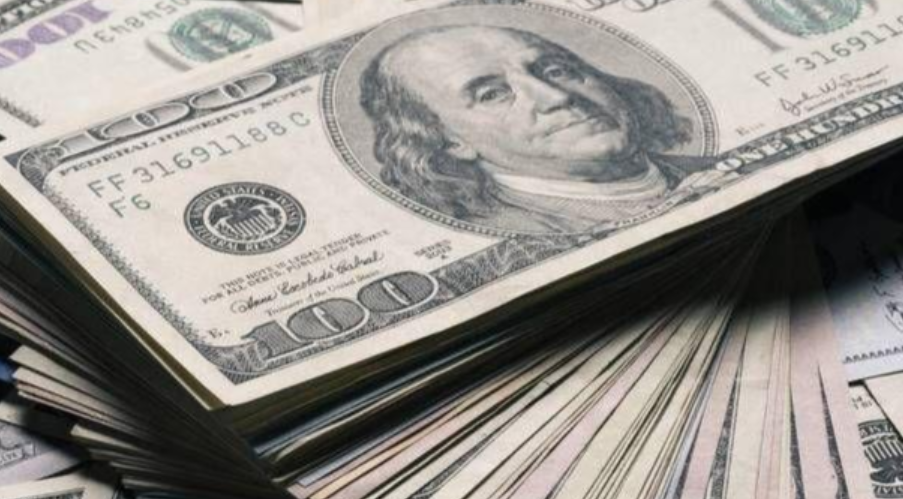Ruble's Fortunes Tied to Gold
Advertisements
Since the onset of the conflict between Russia and Ukraine, there has been a seismic shift in global economic relations, particularly between Russia and the Western powers, namely the United States and the European Union. Sanctions against Russia have become a significant part of the West’s response, with over 5,000 sanctions imposed, effectively isolating Russian banks from the SWIFT financial system, thereby crippling its ability to conduct international trade. This has led to a notable collapse in the Russian economy, with numerous Western companies like PepsiCo, Coca-Cola, McDonald's, and Starbucks shutting down or leaving the Russian market entirely. As a consequence, the Ruble has faced severe depreciation against other currencies, particularly the dollar and the euro.
In light of this economic turmoil, Russia has responded with several bold strategies aimed at undermining the position of the U.S. dollar as the global reserve currency and reinvigorating its economy. One of the boldest moves has been the announcement that "unfriendly" countries would now be required to use Rubles to purchase Russian oil and gas—a significant shift given the traditional reliance on U.S. dollars in the energy sector.
Historically, Russia has wielded considerable influence as a leading oil and gas producer. The Kremlin believes that European nations, heavily reliant on Russian energy, will struggle to find alternatives in the short term, despite the U.S. being an oil-exporting powerhouse. The objective is clear: if payments can no longer be made in dollars, the Ruble must be used, effectively forcing nations like those in the EU to reassess their purchasing strategies amid energy shortages. The ultimatum reflects a shift that casts the dollar’s dominance into doubt; should Russia refuse to accept it, other nations may follow suit, further eroding trust in its stability.

In a further escalation, Russia has also stated that any American or European businesses failing to resume operations within a specified time frame would face nationalization. This provocative measure directly retaliates against the freezing of Russian assets, totaling about $300 billion, by American authorities. It clearly indicates that if the West intends to seize Russian property, the Kremlin is prepared to reciprocate by claiming Western businesses operating within its borders.
However, Russia’s most audacious strategy is perhaps its proposal to allow foreign entities to purchase Rubles using gold from Russian banks by the end of June. This measure introduces a novel mechanism for obtaining Rubles, theoretically bypassing U.S. sanctions while allowing Russia to utilize its substantial gold reserves strategically. At the set exchange rate of 5,000 Rubles per gram of gold, this effectively ties the Ruble's value to a physical asset, representing a significant shift in foreign currency dynamics.
This arrangement could have profound implications for the value of the Ruble and the perception of its stability on global markets. By anchoring the Ruble to gold, Russia challenges the traditional dollar-gold-commodity relationship and seeks to elevate the Ruble's status beyond mere fiat currency. Such a maneuver could also risk diminishing the U.S.’s control over global gold reserves if trading patterns change in favor of Ruble transactions.
These strategies highlight a broader push among nations to move away from reliance on the dollar, an initiative already gaining traction among several countries. Amid fears of U.S. overreach and economic bullying exemplified by the recent asset freezes, nations are increasingly exploring alternatives to the SWIFT payment system. Even nations traditionally aligned with the U.S., like India, have started to consider using the Renminbi (RMB) for trade with Russia, signaling a shift in the geopolitical landscape that could have lasting effects on dollar dominance.
Moreover, as the world grapples with the economic ramifications of the ongoing conflict, increasing geopolitical tensions have led to calls for greater currency diversification and the establishment of new trade frameworks outside of the U.S. dollar's sphere of influence. Countries once apprehensive about losing access to the U.S. financial system are now contemplating the necessity of building their own financial security.
In a bid to strengthen its financial infrastructure, Russia aims to transform Moscow into a leading global financial center by 2025. Recognizing that reliance solely on energy exports is not sustainable long-term, Russia has been actively stockpiling gold—over 2,300 tons as of late 2021—in an effort to solidify its monetary position globally. The intention is to leverage its rich natural resources, including oil and gas, while positioning the Ruble as a viable currency in international trade.
However, the efficacy of these measures in truly dismantling the dollar's hegemony remains to be seen. The long-term influence of the dollar will not depend solely on Russia's maneuvers but will require collective action from other nations willing to participate in this de-dollarization movement. As more countries pivot away from dollar reliance, the overall sentiment could provoke a more significant reevaluation of the global financial order.
In conclusion, Russia's bold financial moves in the wake of Western sanctions represent not only a reactive stance to isolation but an audacious attempt to fundamentally challenge U.S. economic supremacy. While it is uncertain whether these strategies will result in the intended destabilization of the dollar's dominance, they undeniably mark a critical juncture in international finance and politics. As Russia takes these steps, the ramifications echo far beyond its borders, potentially altering the dynamics of global currencies and international relations for years to come.
Leave A Comments